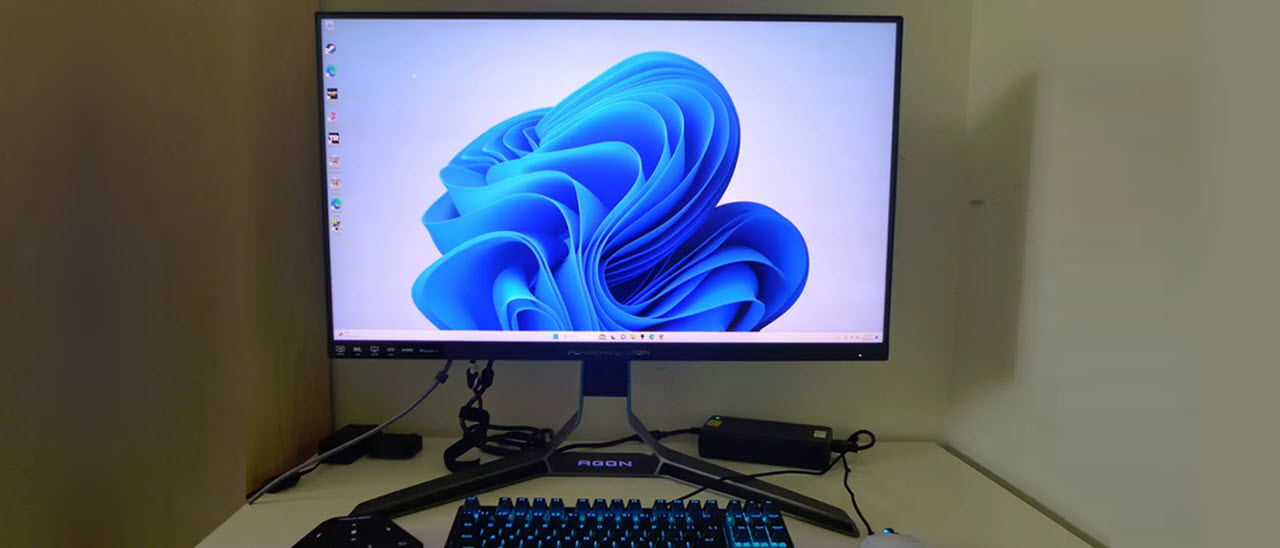Why you can trust Tom's Hardware
To read about our monitor tests in-depth, please check out Display Testing Explained: How We Test PC Monitors. We cover brightness and contrast testing on page two.
Uncalibrated – Maximum Backlight Level
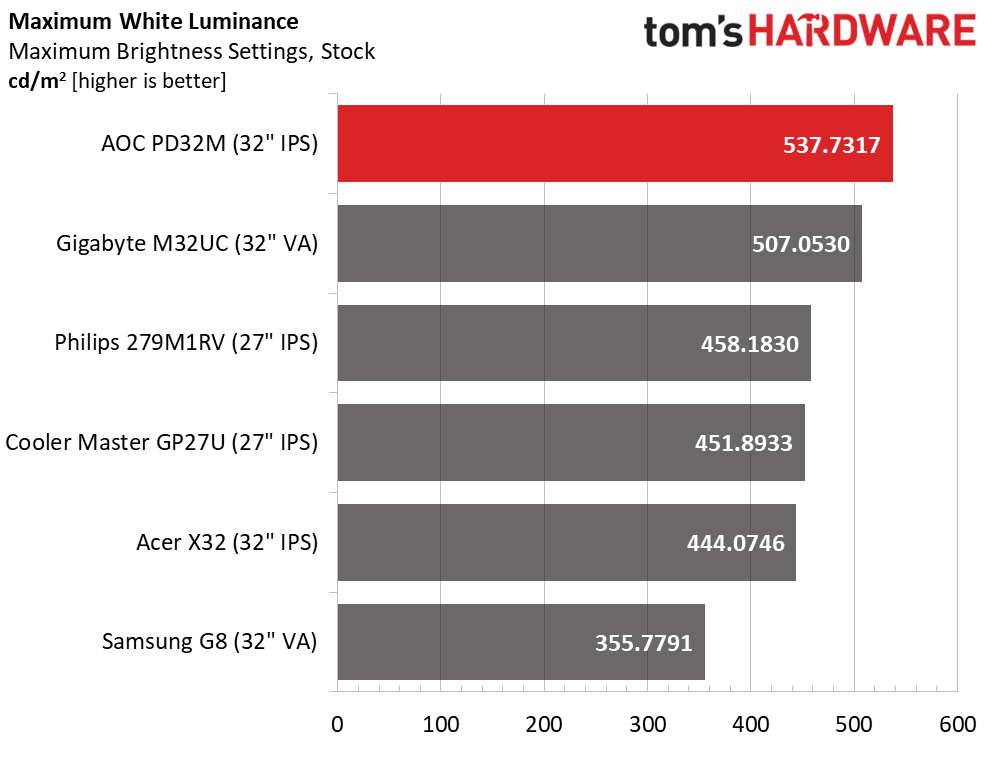
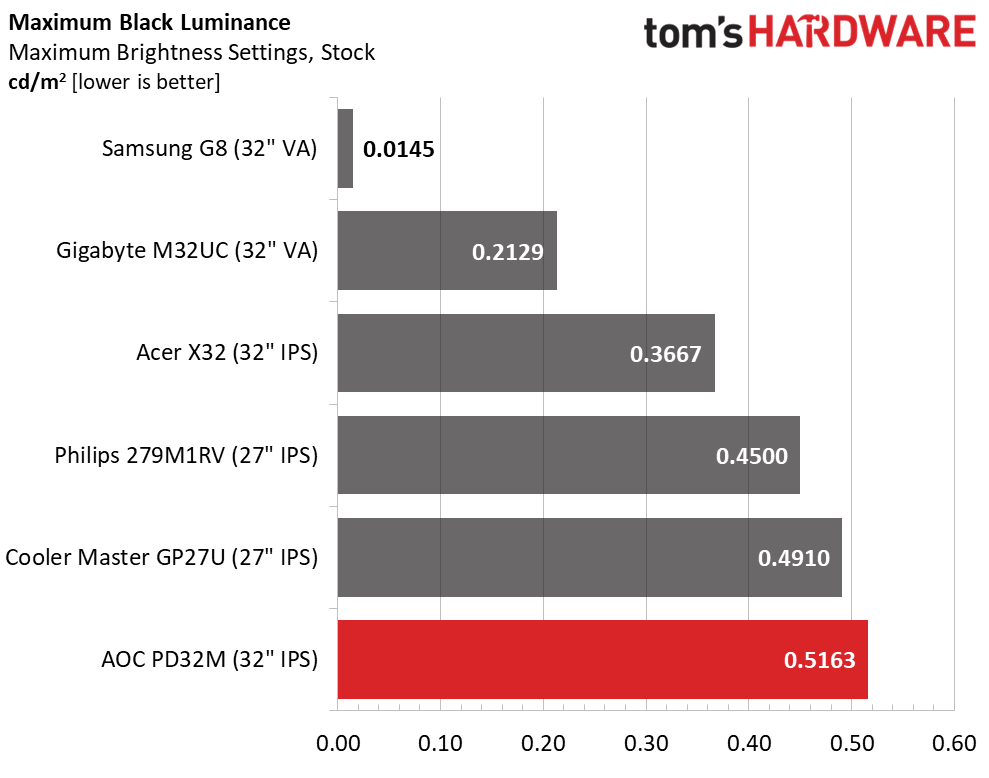
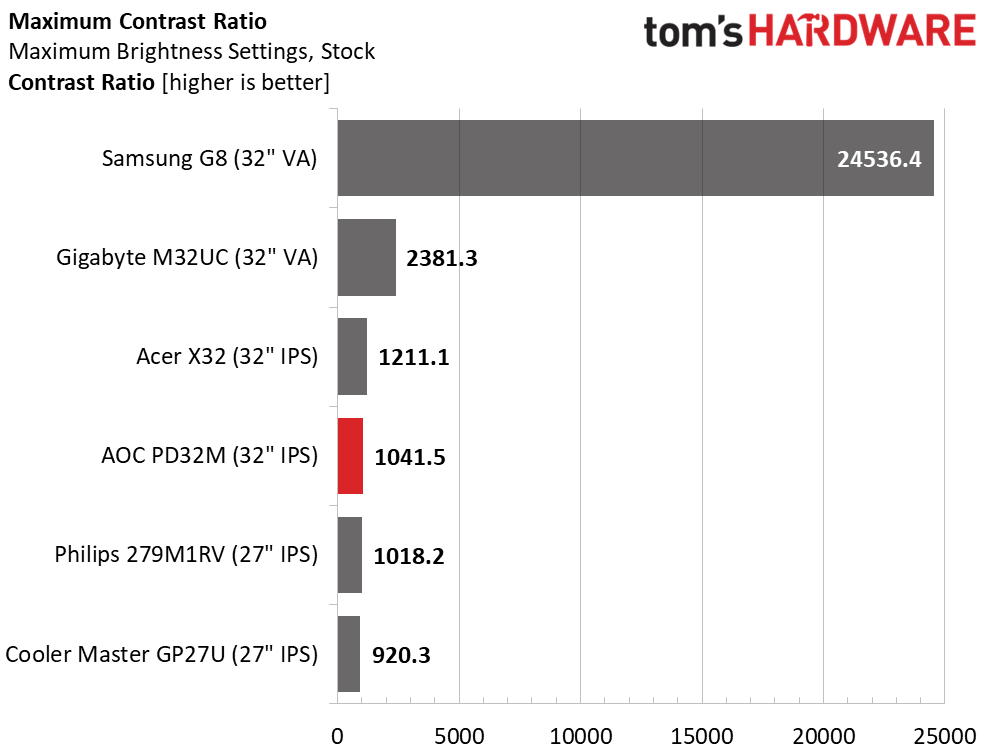
Luckily, the PD32M doesn’t bring its full 1,600-nit capability to bear in SDR mode. But you still get a lot of headroom with 537 nits peak. That is more than enough output for any indoor or outdoor scenario. In addition, you can dial it down to a minimum of 52 nits for dark room play, so there’s plenty of range there.
Though the black level puts the AOC last, it has solid native contrast, 1,041.5:1 which is on par with most IPS monitors. However, the VA panels are on another level and the Samsung employs local dimming, which can’t be defeated to achieve a super high contrast ratio.
After Calibration to 200 nits
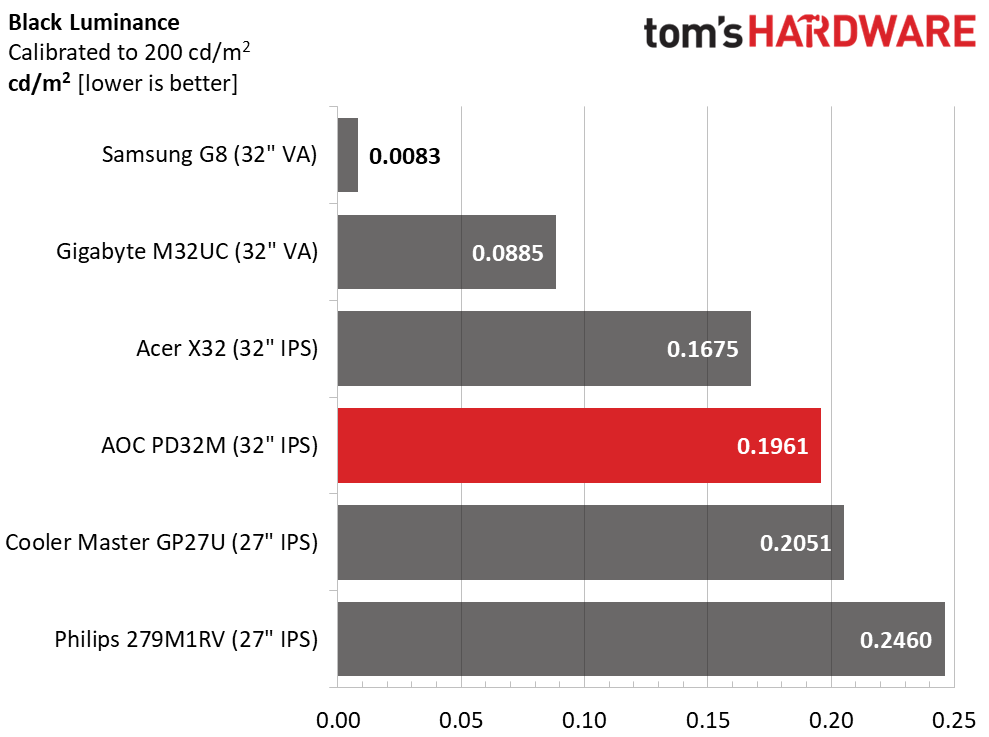
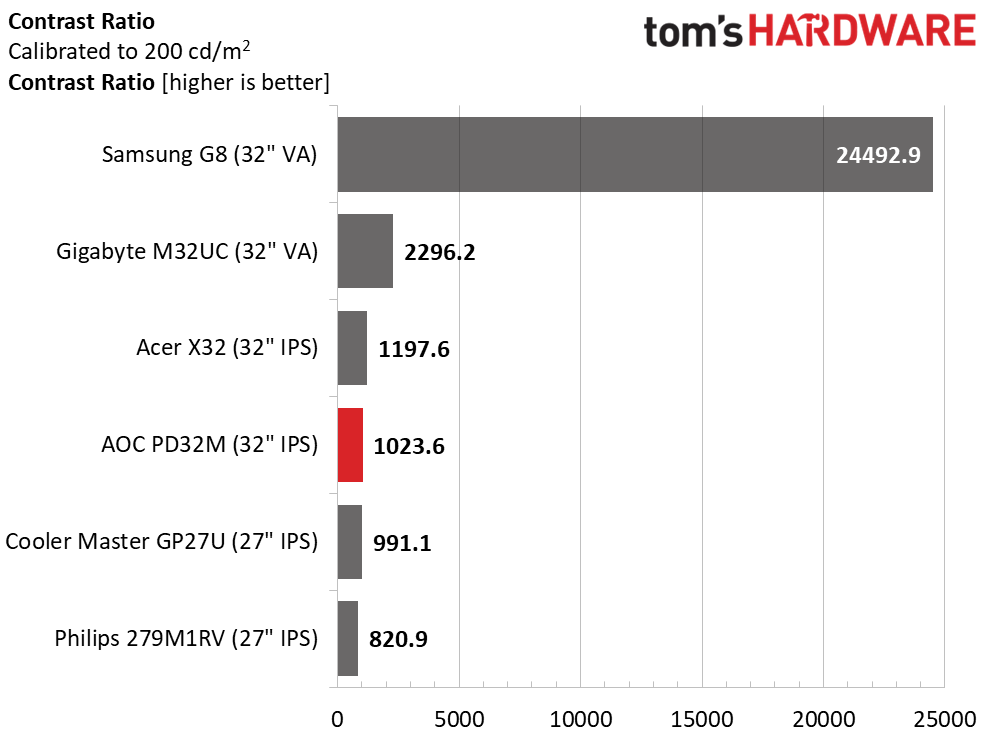
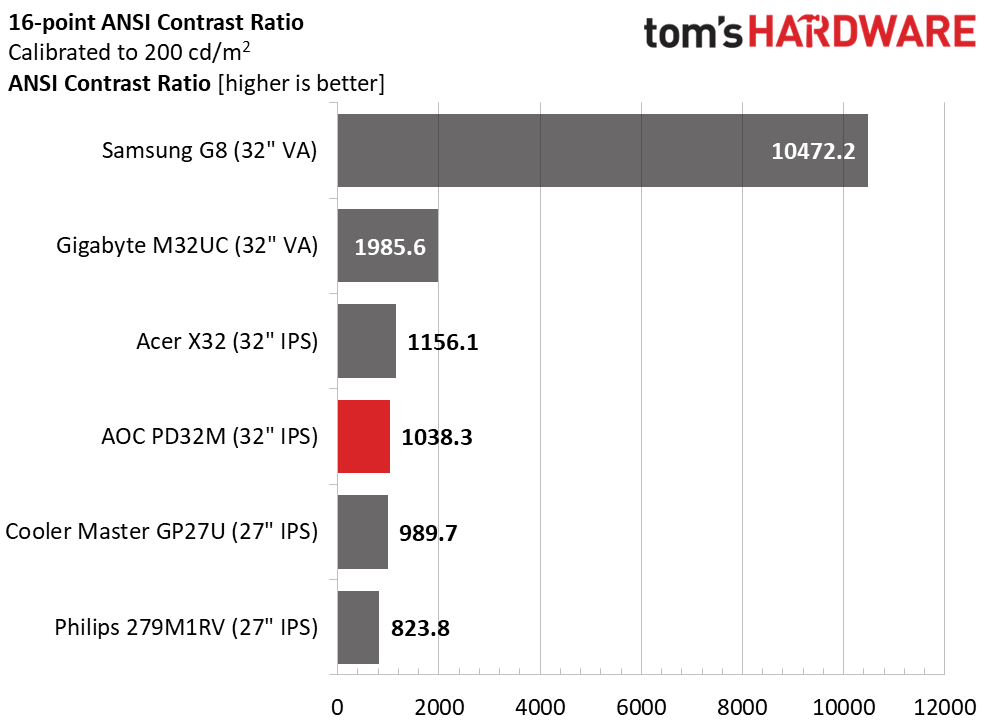
Calibration makes little difference to the PD32M’s SDR contrast, which is good. It’s only a bit behind the X32, which looks the same in a side-by-side comparison when showing real-world content. If you want higher native contrast, a VA or OLED panel are your only options.
The PD32M shows its high level of quality control in the ANSI test where contrast is still over 1,000:1. That tracks with the Acer X32, the closest competitor. Considering the dynamic range, the Acer is around $600 cheaper but has fewer dimming zones, 576, versus the AOC’s 1,152. When showing actual content, the PD32M has a slightly deeper and more three-dimensional picture.
MORE: Best Gaming Monitors
MORE: How We Test PC Monitors
Get Tom's Hardware's best news and in-depth reviews, straight to your inbox.
MORE: How to Buy a PC Monitor
MORE: How to Choose the Best HDR Monitor
Current page: Brightness and Contrast
Prev Page Response, Input Lag, Viewing Angles and Uniformity Next Page Grayscale, Gamma and Color
Christian Eberle is a Contributing Editor for Tom's Hardware US. He's a veteran reviewer of A/V equipment, specializing in monitors. Christian began his obsession with tech when he built his first PC in 1991, a 286 running DOS 3.0 at a blazing 12MHz. In 2006, he undertook training from the Imaging Science Foundation in video calibration and testing and thus started a passion for precise imaging that persists to this day. He is also a professional musician with a degree from the New England Conservatory as a classical bassoonist which he used to good effect as a performer with the West Point Army Band from 1987 to 2013. He enjoys watching movies and listening to high-end audio in his custom-built home theater and can be seen riding trails near his home on a race-ready ICE VTX recumbent trike. Christian enjoys the endless summer in Florida where he lives with his wife and Chihuahua and plays with orchestras around the state.
-
UWguy Did April fools come twice this year? If this was OLED maybe it would justify the price but definitely not as is.Reply
Plus AOC? Gives me flashbacks to the 80’s with their crappy interference laden CRT monitors. -
oofdragon ReplyUWguy said:Did April fools come twice this year? If this was OLED maybe it would justify the price but definitely not as is.
Plus AOC? Gives me flashbacks to the 80’s with their crappy interference laden CRT monitors.
Well this is a advertising website, not a review one.. so you have these amazing products left and right. I do agree that as of today I wont buy a expensive monitor if it's not OLED. They say "but Mini led is brighter!! " Bro I turn brightness down the most I can, I don't want to look at a super bright lamp but at pure black, and make it 240Hz because today that's the new standard -
jakjawagon ReplyThere is no KVM switch, unfortunately.
Yes there is. The monitor's USB ports will connect via either the USB-C port or the USB-B upstream port, depending on which display input is active. Not the most elegant solution, but it's still technically a KVM.
A tiny dongle plugs into one of the USB ports to support the wireless remote.
I'm guessing you're mistaking the included USB stick containing drivers, manuals etc. for a dongle. The remote works fine without plugging it in. -
ra3tonite I have a 1440p monitor but I still play games at 1080p. A lot of games look really great 1080p when playing on a native 1080p monitor. But when I use my 1440p monitor and scale back to 1080p, I notice that the image is not as sharp as when just playing on a native 1080p monitor.Reply
I wonder if using a 4k monitor but scaling back to 1080p for games would have that same blurring effect? Not sure since 2160p to 1080p is a cleaner ratio compared to 1440p to 1080p. I'm not really sure how that stuff works, though. Any thoughts?
